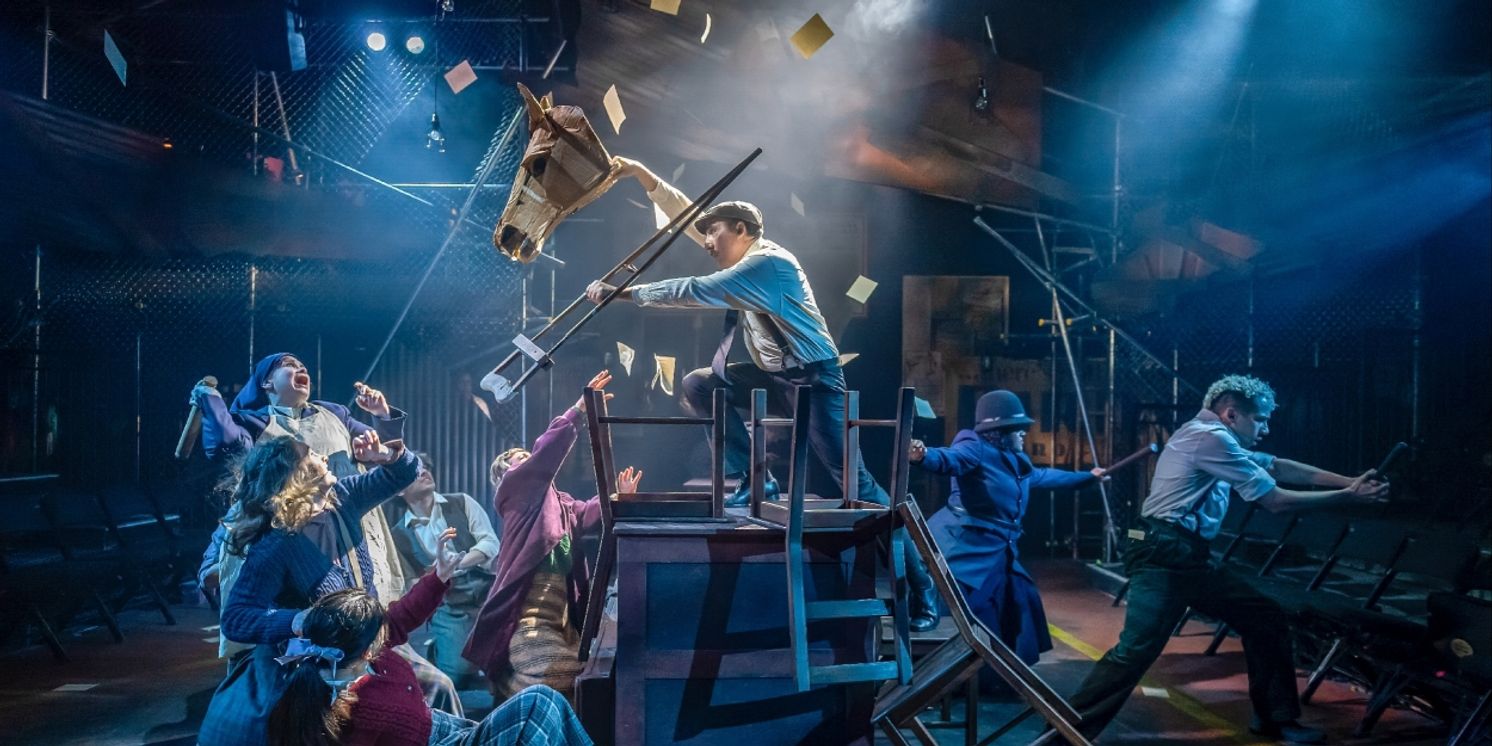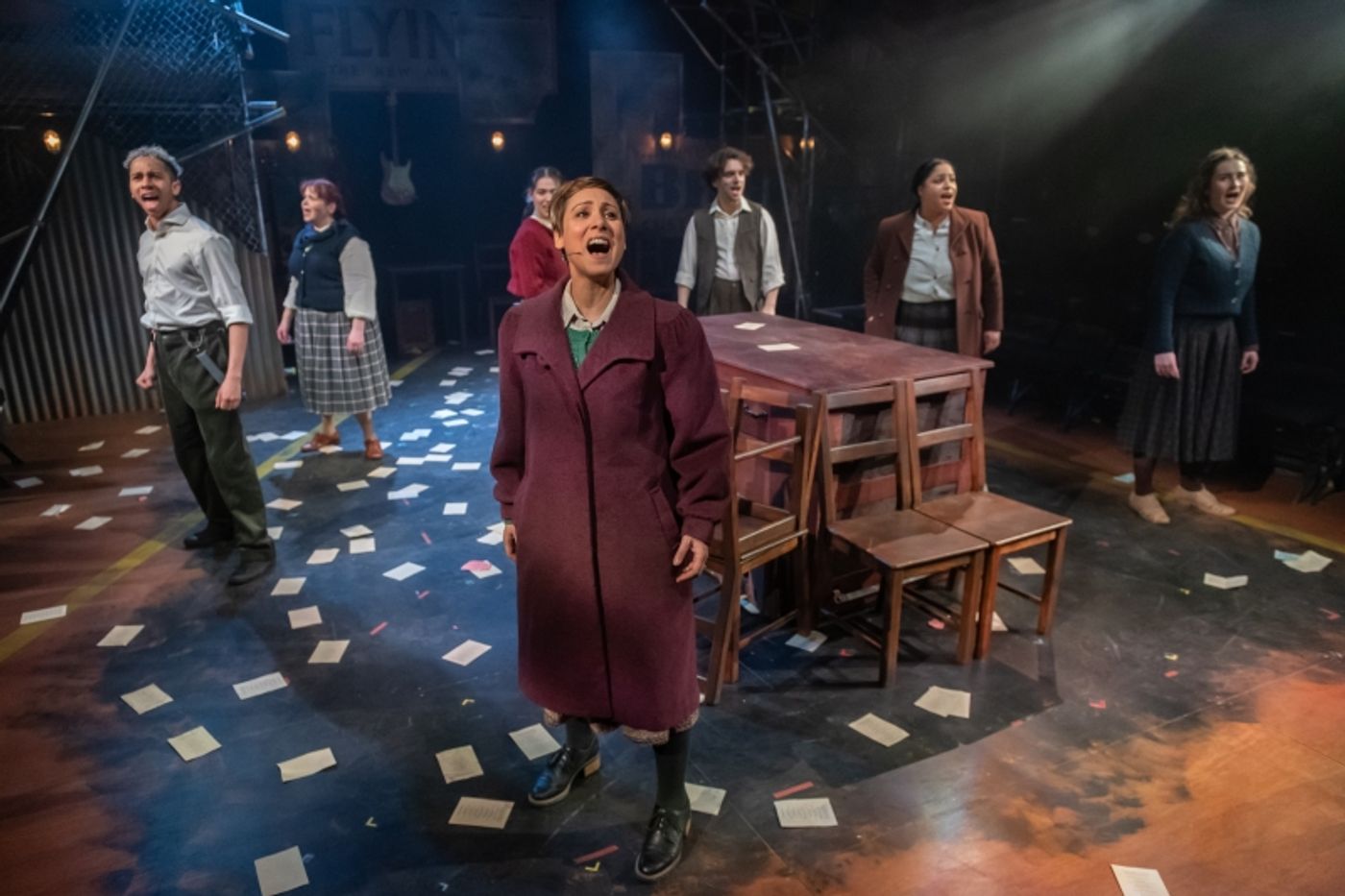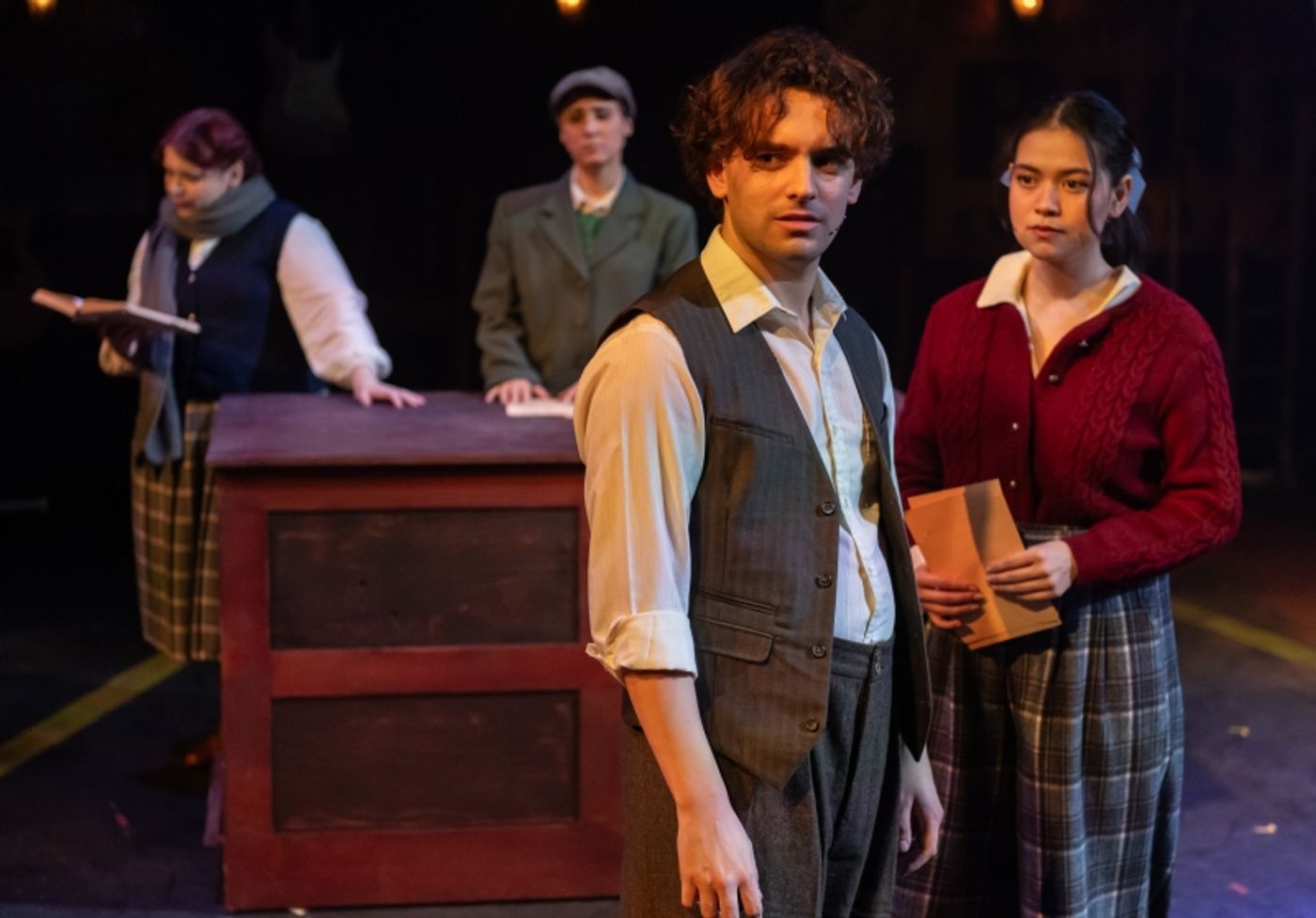Review: CABLE STREET, Southwark Playhouse
A thrilling new musical destined for great things.

![]() To describe Cable Street as been highly anticipated would be a gross understatement: it’s basically unheard of for a new, Off West End musical to completely sell out its run before a single review has been published. Nevertheless, this little show that could is absolutely deserving of its success, and seems to be destined for great things.
To describe Cable Street as been highly anticipated would be a gross understatement: it’s basically unheard of for a new, Off West End musical to completely sell out its run before a single review has been published. Nevertheless, this little show that could is absolutely deserving of its success, and seems to be destined for great things.
Musical theatre loves a good historical event. Fom Les Mis to Hamilton, Newsies to Evita, there’s no denying the highs and lows of the past can offer up some great material. Cable Street provides another great example of this. Set on the titular street in the 1930s, this new musical follows the events leading up to the Battle of Cable Street, which was fought between the British Union of Fascists and the local Irish people, Jewish people, communists, and others.
The show focuses on Mairaid (Sha Dessi), an Irish girl working at a Jewish bakery; Sammy (Joshua Ginsberg), a Jewish local struggling to find a job; and Ron (Danny Colligan), a Northern lad who starts to believe the fascists’ rhetoric. Alex Kanefsky’s book effectively weaves these three stories together, exploring three different experiences of the event.
The range of perspectives given is one of the show’s greatest strengths: rather than telling one account of the story, we understand what happened through the eyes of a wide variety of Cable Street residents. The cast of eleven all multirole, making it possible for the full community of the area to be represented onstage. There’s no weak link in this cast, which includes recent grads alongside West End stalwarts. Every performer has solo acting and singing moments, with particularly impressive vocals coming from Danny Colligan and Sophie Ragavelas.

Image Credit: Jane Hobson
The diversity of the cast and characters is reflected in the show’s score: while the overwhelming style is MT, there’s also plenty of rap, as well as some Jewish and Irish influences. This gives the music a contemporary feel, ensuring the show stays rooted in the present. The stand-out musical moments can be found in its group numbers: opening ‘My Street’, Act One closer ‘No Pasarán!’, and celebratory number ‘Sunrise’ all feature goosebump-inducing harmonies. Composer Tim Gilvin demonstrates an astute understanding of musical theatre as a genre, combining powerful ensemble moments with touching solos. All of this is complemented by MD Tamara Saringer’s beautiful arrangements.
It would have been easy for Cable Street to become something of a messy production: there’s a lot of plot, a lot of characters, and a lot of musical styles. Under Adam Lenson’s direction, however, the show is staged with creativity and cohesion. Especially impressive is the sequence of ‘The Battle’, where set, props, direction, choreography, and even a touch of puppetry come together to recreate a massive protest using only eleven people. Alongside choreographer Jevan Howard-Jones, Lenson gives the show a distinct tone and movement language, which keeps it feeling fresh and exciting throughout.

Image Credit: Jane Hobson
Another success of this production is the way it treats the contemporary relevance of its themes. In the programme, the creators talk about how the idea stemmed in many ways from the current return of fascist ideologies in the UK, and the parallels that can be drawn between this and the story of Cable Street. These parallels are for the most part left to speak for themselves, rather than being made too explicit. Additionally, the show includes a few scenes set in the present day, with ancestors of the characters taking a tour of the area – a smart way of reminding us that this isn’t too distant a historical event.
As with any new musical, there are some things to tidy up: the show feels a little lengthy, especially in the first act, with some scenes and songs that could easily be cut. One of the biggest challenges in telling this story onstage is the accents: with characters from so many different backgrounds, the actors are tasked with quite the feat of accent gymnastics. It can feel jarring at times, and the accents often fall away into RP when the performers start singing.
The extent of the multiroling also becomes a little confusing in places, but this could perhaps be solved with a slightly larger cast. Additionally, the use of two actor-muso performers (Max Alexander-Taylor on guitar and Aoife Mac Namara on violin) often feels somewhat random, and not fully integrated with the production and its storytelling. It’s easy to excuse these imperfections for now, however: it’s not easy to get a new musical to the stage, and there’s plenty of time for Cable Street to be developed further.
Combining past and present in a thrilling story that’s still relevant today, Cable Street is a musical with a very bright future ahead. With the full Southwark run sold out, it seems inevitable that the show will get an extension and/or transfer – I expect to see it on the West End in the not so distant future.
Cable Street runs at Southwark Playhouse (Borough) until 16 March. The run is fully sold out, but is operating a returns policy.
Image Credit: Jane Hobson
Reader Reviews
Videos

